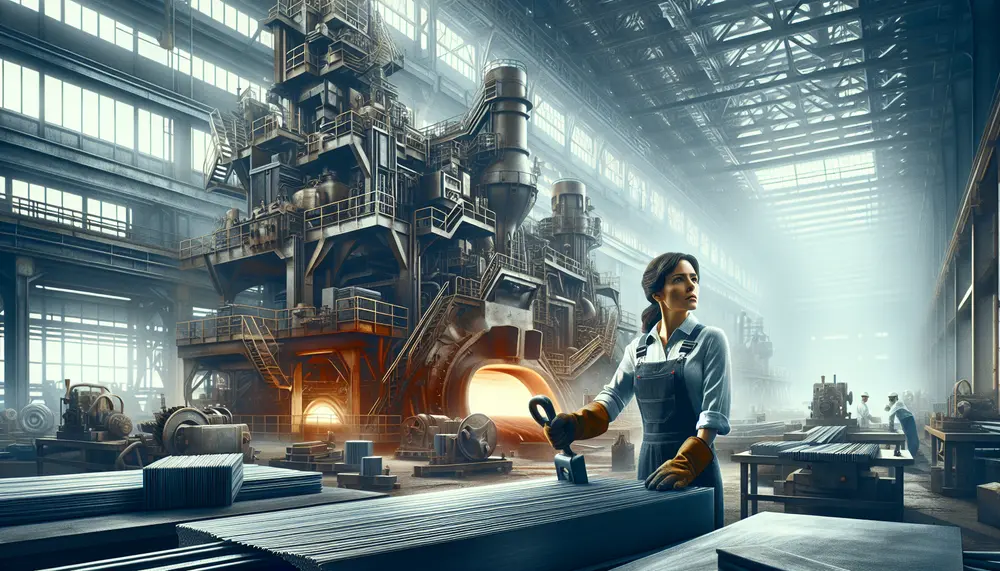Carbon Steel
Carbon Steel
Willkommen zu unserem Glossar Eintrag über Carbon Steel, oft einfach nur als Kohlenstoffstahl bezeichnet. Als gängiges Material in der Stahlproduktion und im Stahlhandel ist es essentiell, dieses Material und seine Eigenschaften zu verstehen.
Was ist Carbon Steel?
Carbon Steel ist eine Bezeichnung für Stähle, deren Hauptbestandteil Eisen und Kohlenstoff ist. Der Kohlenstoffgehalt kann dabei variieren, was die Eigenschaften des Stahls beeinflusst. Allgemein kann man sagen: Je höher der Kohlenstoffanteil, desto härter wird der Stahl.
Die Arten von Carbon Steel
Es gibt drei grundlegende Arten von Kohlenstoffstahl: niedriglegierter, mittlerer Kohlenstoffstahl und hochlegierter Kohlenstoffstahl. Was sie unterscheidet, ist der Kohlenstoffgehalt und die Legierungselemente. Niedriglegiert bedeutet, dass der Stahl weniger als 0,3% Kohlenstoff enthält. Mittlerer Kohlenstoffstahl enthält zwischen 0,3% und 0,6% Kohlenstoff und hochlegierter Kohlenstoffstahl hat mehr als 0,6% Kohlenstoff. Der erhöhte Kohlenstoffgehalt wird oft mit anderen Legierungselementen wie Mangan kombiniert, um die Festigkeit und Härte zu verbessern.
Nutzung von Carbon Steel
Sie finden Kohlenstoffstahl in vielen verschiedenen Branchen und Anwendungen. Von der Automobilindustrie über die Bauindustrie bis hin zur Herstellung von Industriemaschinen und Werkzeugen. Seine Stärke und Preis-Leistungs-Verhältnis machen es zu einer beliebten Wahl für viele Anwendungen.
Vorteile und Nachteile von Carbon Steel
Carbon Steel ist bekannt für seine Stärke und Festigkeit. In Abhängigkeit vom Kohlenstoffgehalt kann er sehr hart und beständig gegen Abnutzung sein. Aber wie bei jedem Material, hat auch Carbon Steel einige Nachteile. Einer davon ist, dass er, wenn er nicht richtig behandelt wird, zur Korrosion neigt. Das bedeutet, dass für bestimmte Anwendungen Extraschutz nötig ist, um die Lebensdauer zu verlängern.
Fazit
Carbon Steel ist ein vielseitiges und wichtiges Material in der Stahlproduktion und im Stahlhandel. Es bietet eine Kombination von Stärke, Härte und Kostenwirksamkeit, die es für eine breite Palette von Anwendungen geeignet macht. Trotz einiger Herausforderungen in Bezug auf Korrosion hat sich Carbon Steel als unverzichtbar in vielen Industriezweigen bewährt.
Blog Posts with the term: Carbon Steel
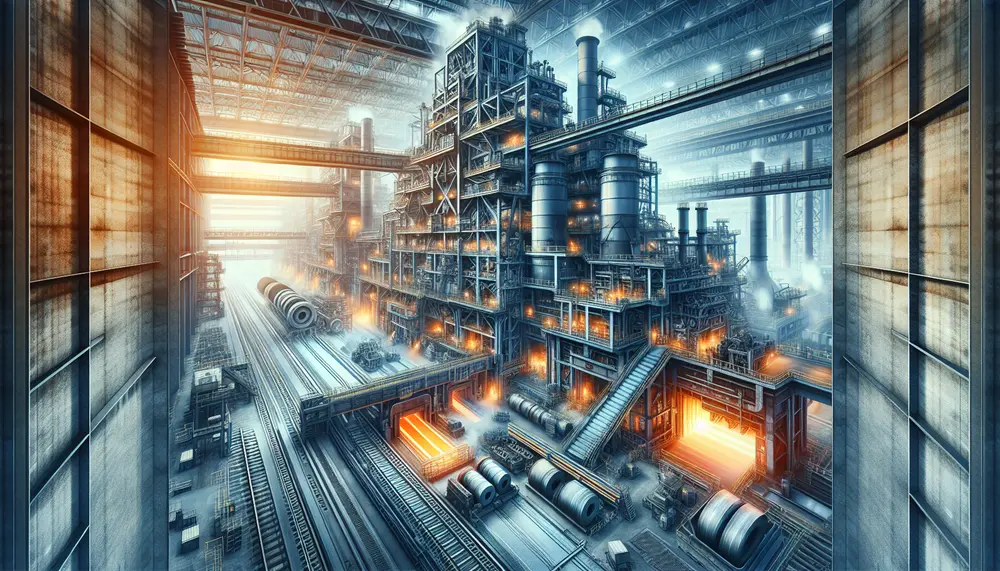
The article provides an overview of the steel making process, detailing how raw materials like iron ore, coke, and limestone are transformed into versatile and durable steel through a complex series of steps depicted in a flow diagram. It discusses...
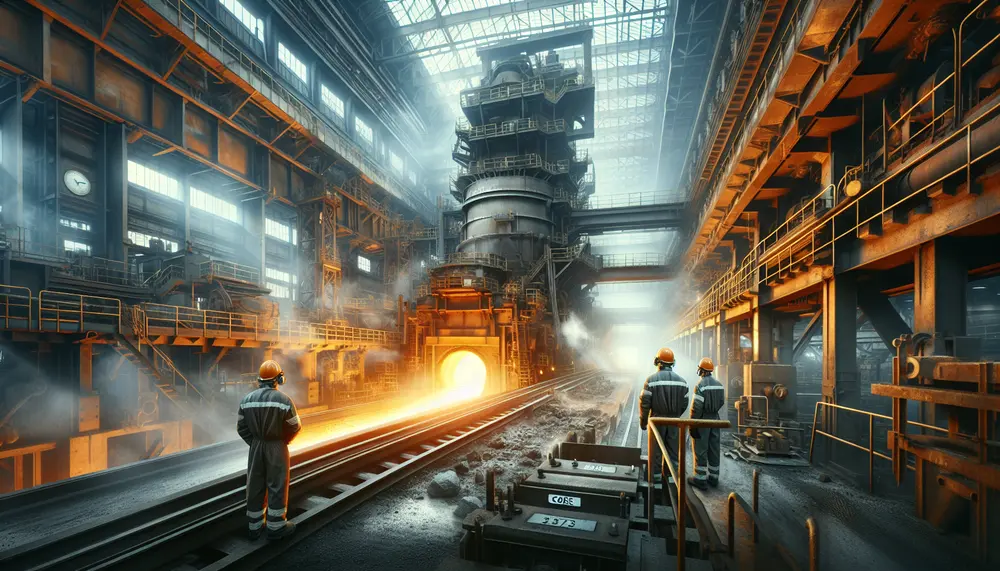
Coke is crucial in steel production, providing heat and chemical reactions for smelting iron ore while also structuring the blast furnace. However, its use emits pollutants and CO2, contributing to environmental concerns....
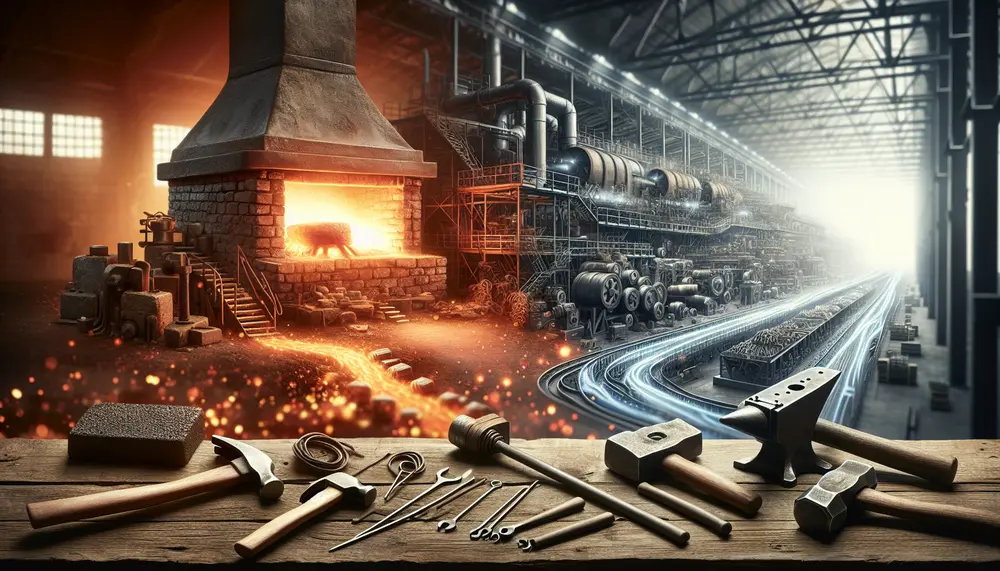
Steel's origins trace back to meteoric iron and evolved with human discovery of smelting around 2500 BCE, leading from the Bronze Age into the Iron Age. The Bessemer Process in the mid-19th century revolutionized steel production, enabling mass production and...
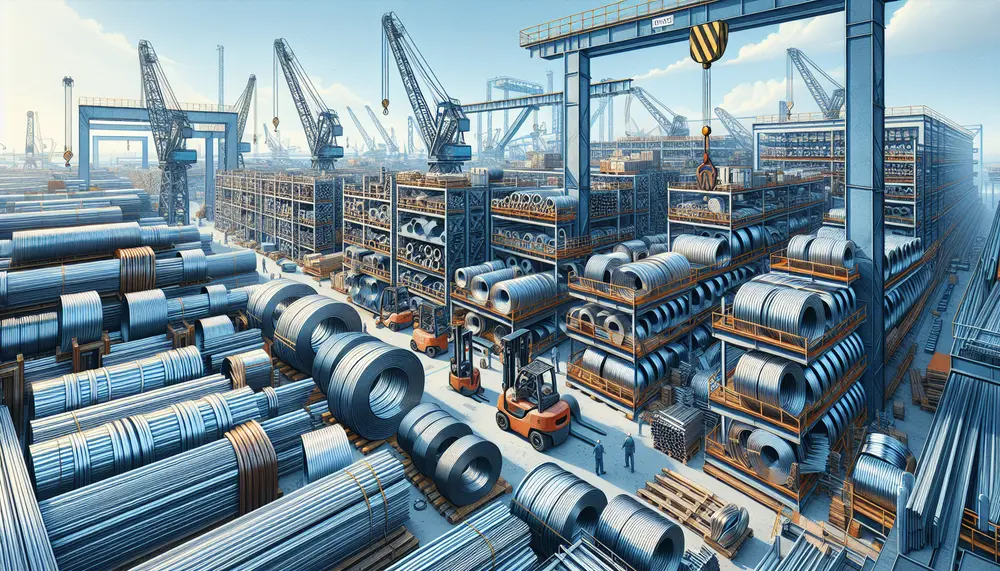
The global steel industry is a critical component of modern infrastructure and economic growth, with production levels indicative of a country's development stage. China dominates the market as the largest producer, while other key nations like Japan, Germany, and India...
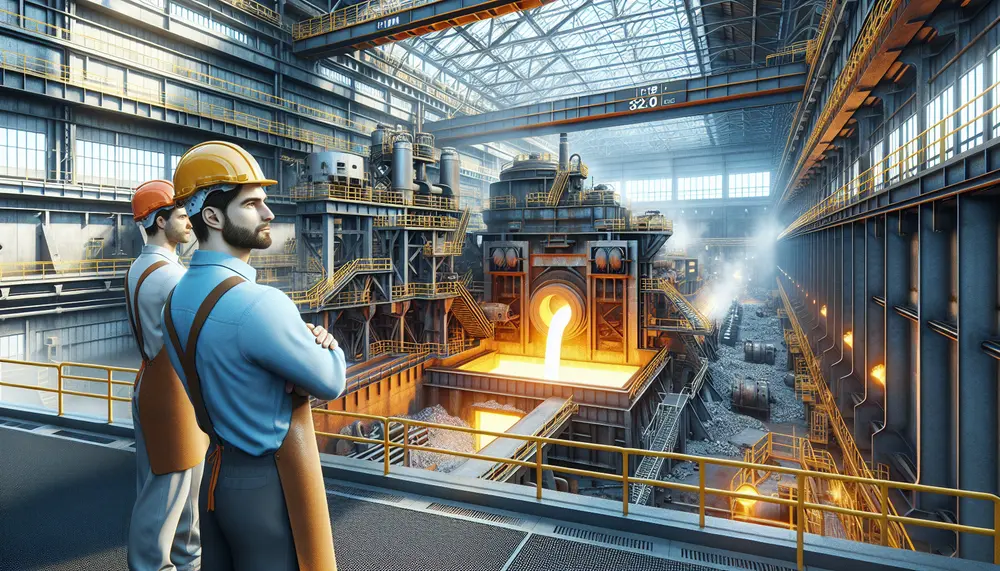
The VOD (Vacuum-Oxygen-Decarburization) steelmaking process is essential for producing high-quality stainless steel with very low carbon levels, crucial for applications like medical instruments and aerospace components. While it offers advantages such as enhanced decarburization and protection of alloying elements, its...
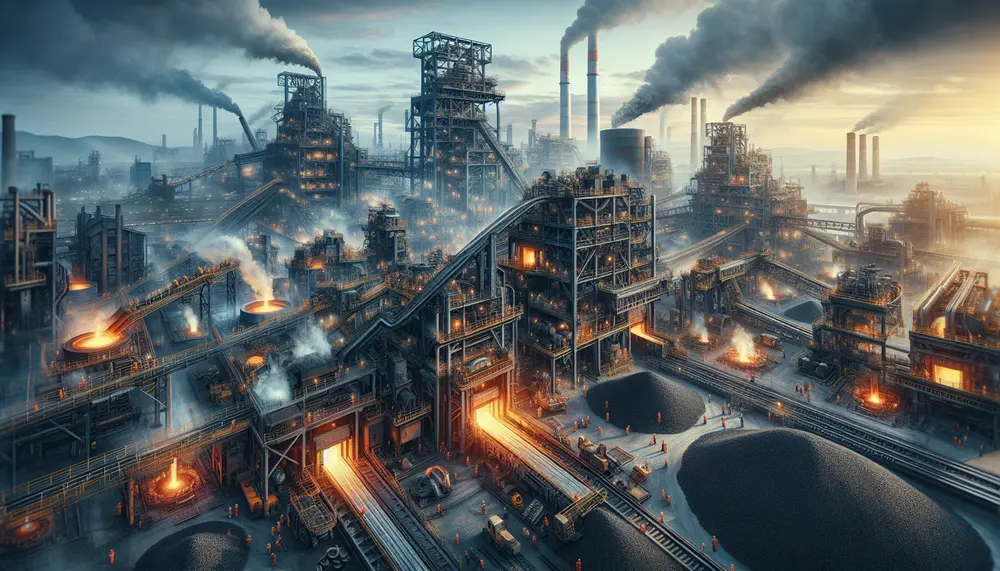
Steelmaking coal, also known as metallurgical or coking coal, is essential for producing coke used in blast furnaces to convert iron ore into steel. The article explores the types of steelmaking coal, its role in steel production, global demand dynamics,...
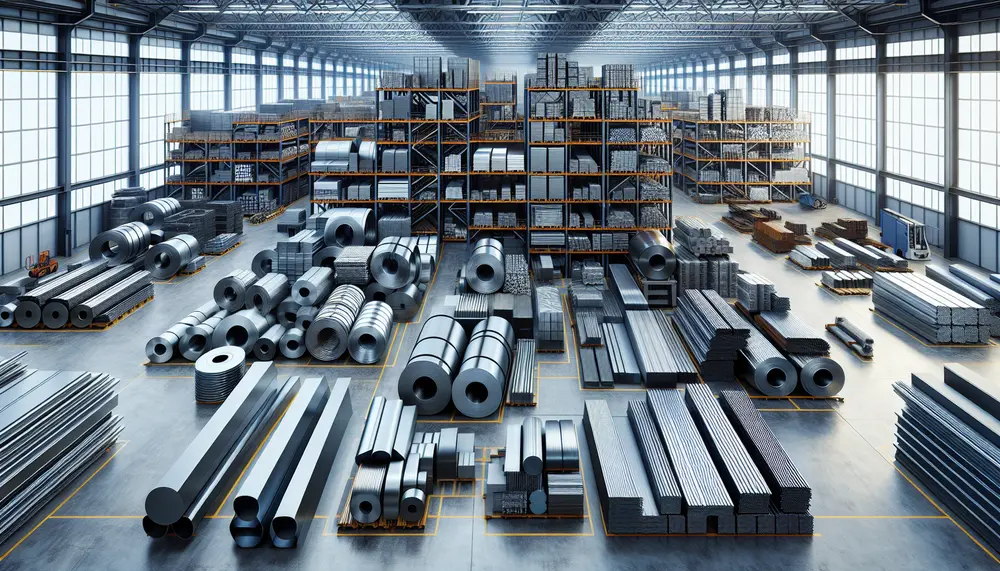
The steel products market is a vital, diverse industry integral to various sectors and driven by demand for durable materials. It's influenced by global economic trends, technological advancements, sustainability efforts, and competitive factors such as cost management and regulatory compliance....
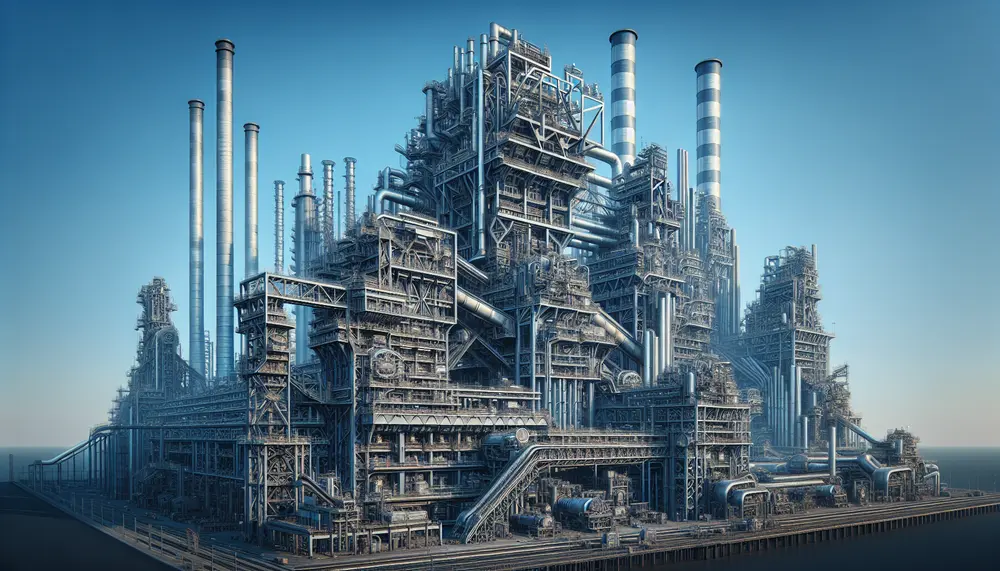
Germany's steel production landscape is marked by advanced facilities, a mix of large conglomerates and specialized businesses, and a focus on high-quality carbon steel and specialty alloys. The industry continues to innovate with digitalization and Industry 4.0 concepts while adhering...
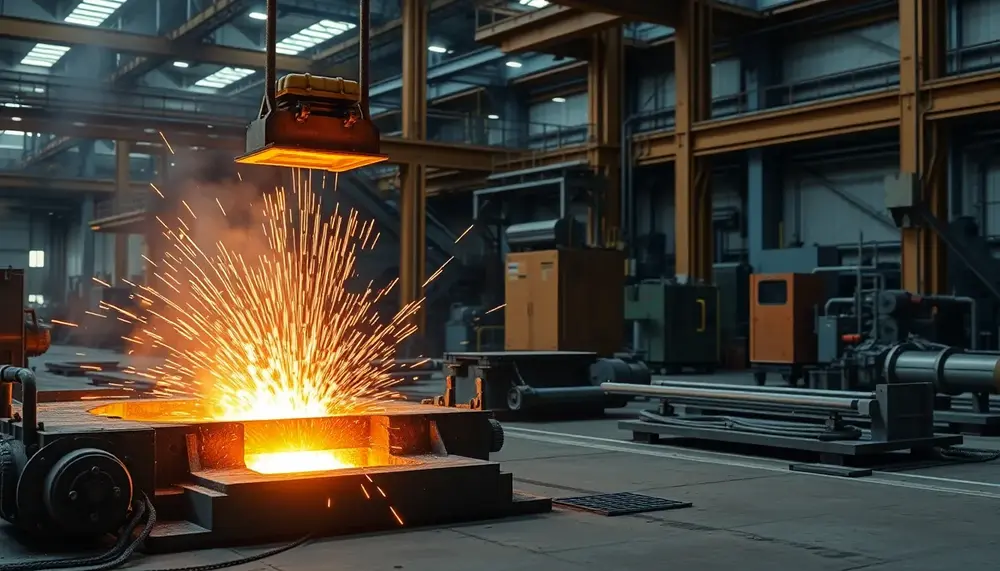
The article explores global steel production, focusing on the Basic Oxygen Steelmaking (BOS) and Electric Arc Furnace (EAF) methods, highlighting their processes, environmental impacts, and adaptability. It emphasizes how sustainability trends are reshaping these techniques while secondary steelmaking refines quality...
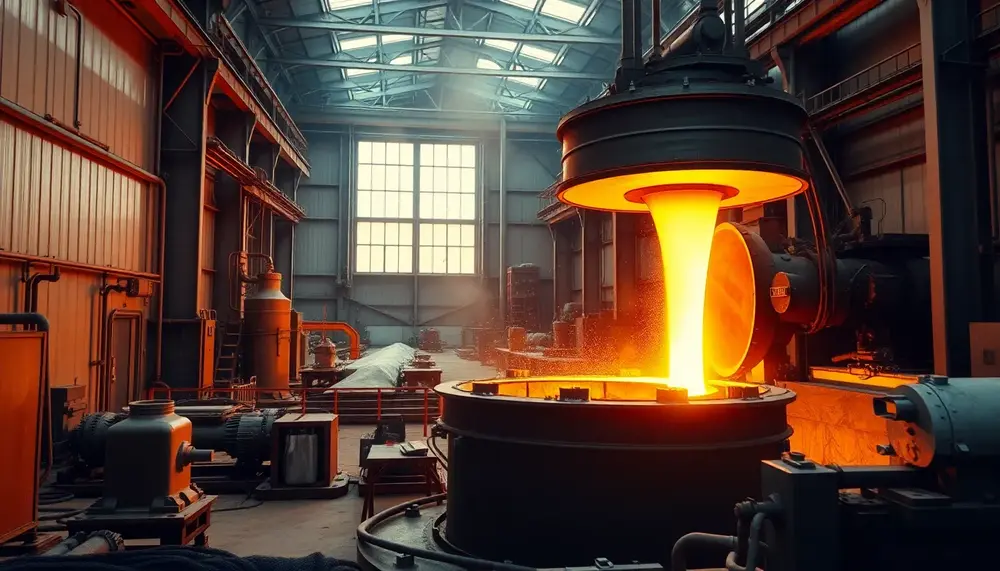
Steelmaking is vital to modern civilization, driving economies, infrastructure development, and sustainability efforts. The industry relies on two main methods—Blast Furnace (BF) for large-scale production with higher emissions and Electric Arc Furnace (EAF) for flexibility and lower environmental impact—shaping a...
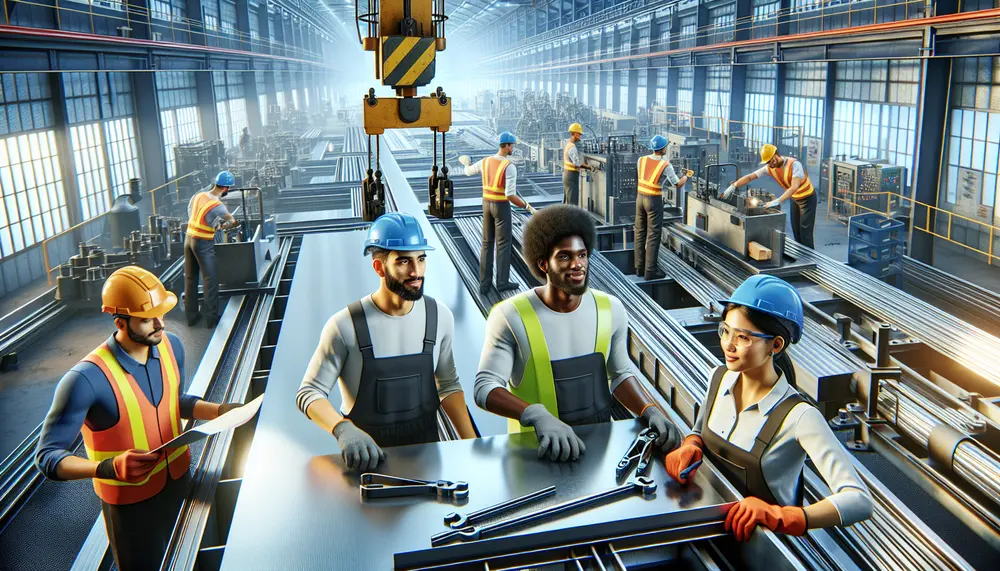
Steelmaking jobs encompass a wide range of roles beyond traditional production, including advanced areas like quality control and environmental compliance, requiring diverse professionals from metallurgists to engineers. The industry offers various career paths with competitive salaries and benefits, emphasizing innovation...
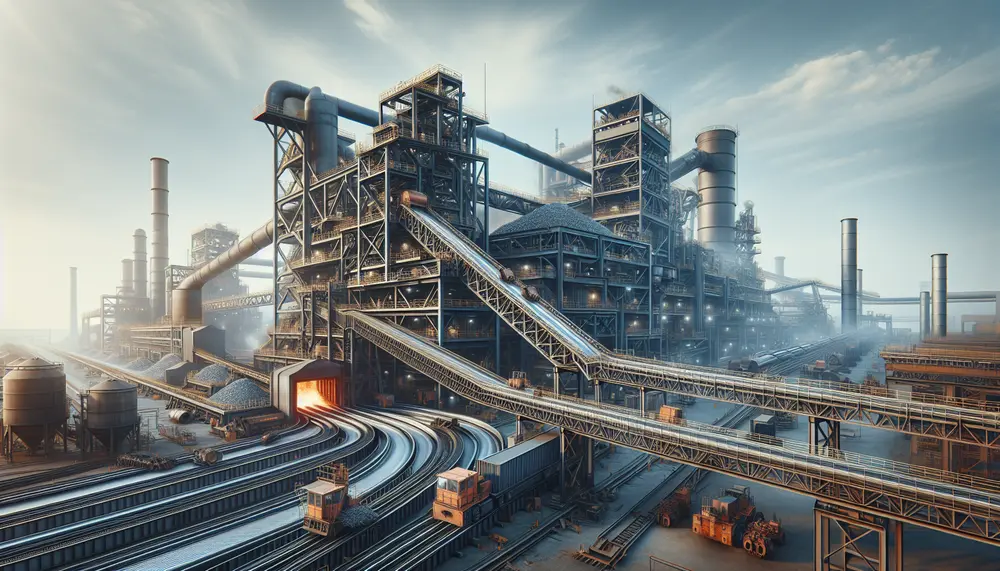
Steel manufacturing from scrap is a sustainable process that reduces environmental impact and conserves resources. It involves collection, separation, melting in an electric arc furnace, refining to remove impurities, adding alloy elements, and casting into new products; recycling steel offers...
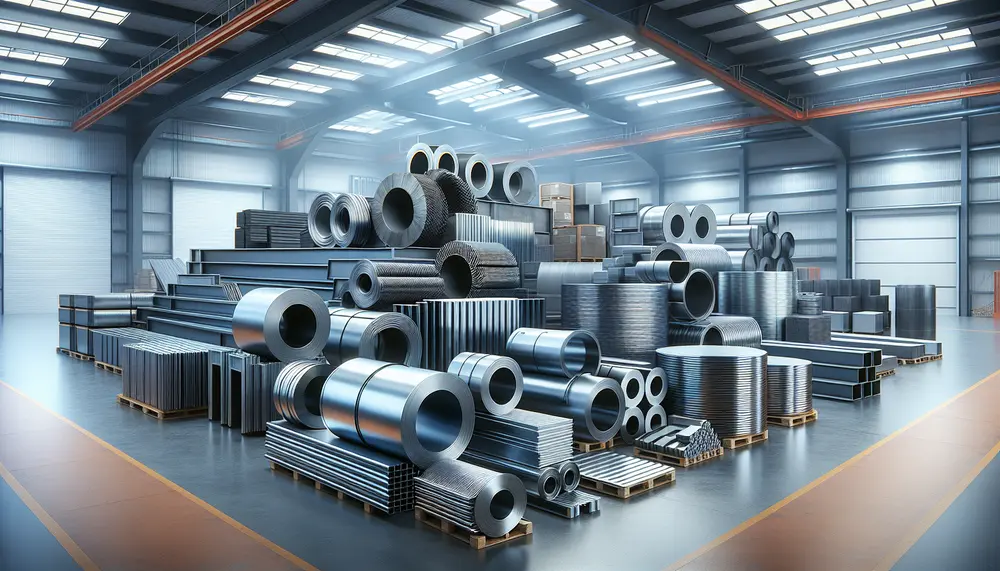
Steel is an iron-carbon alloy with varying carbon content that determines its hardness, ductility, and tensile strength; other elements like chromium can be added to enhance specific properties such as corrosion resistance. Steel products are categorized into four main types:...
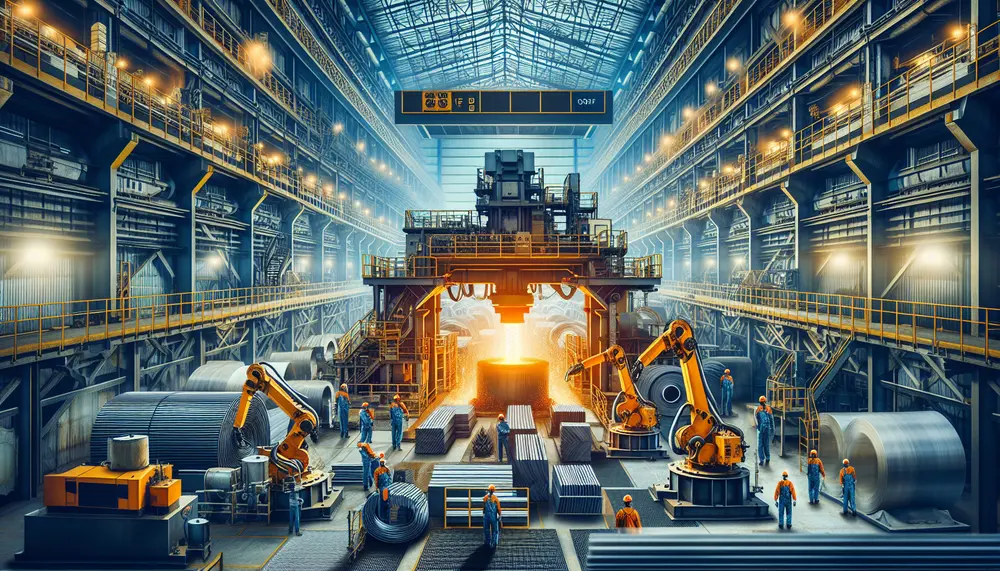
RH technology, initially developed for hydrogen removal in steel making, now plays a crucial role in secondary refining and purification to ensure high-quality steel production. Key advancements like oxygen lances, powder injection systems, the RH-TOP system, and modern vacuum pumps...

